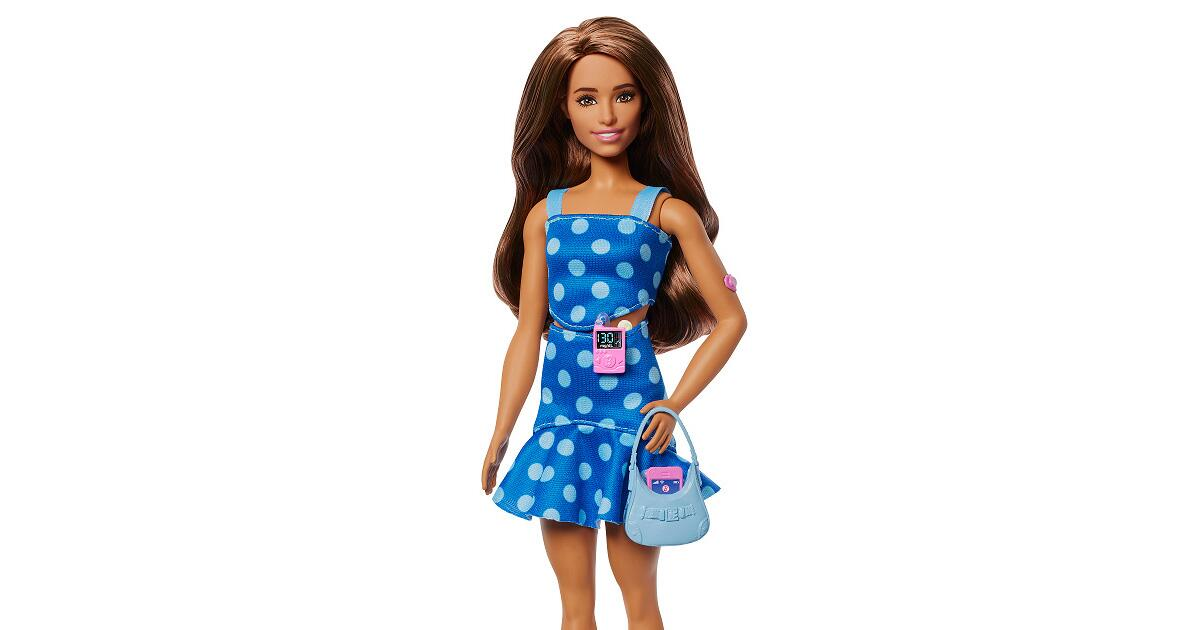Dressed in a matching polka dot tank top and ruffled skirt with blue chunky heeled boots and a mini purse, Mattel’s newest Barbie may look like previous dolls at first glance.
But this particular doll stands out with a wearable insulin pump on her waist, a glucose monitor on her arm and a phone showing her blood sugar readings, making her the El Segundo-based toy company’s first Barbie with Type 1 diabetes.
The doll continues Mattel’s expansion of representation across its flagship brand. The Barbie Fashionistas line features more than 175 looks across various skin tones, body types and disabilities, including previous additions like a blind Barbie, a Barbie with Down syndrome and a Barbie with hearing aids.
The company’s commitment to representation has proved commercially successful. In 2024, the top 10 most popular Barbie Fashionista dolls globally included the blind Barbie and the Barbie with Down syndrome.
The Fashionistas series also includes dolls with vitiligo, prosthetic limbs and wheelchairs. The wheelchair-using doll has consistently been a top performer since its introduction in 2019.
Krista Berger, senior vice president of Barbie and global head of dolls at Mattel, said Barbie helps shape children’s early perceptions of the world. Reflecting medical conditions like T1D ensures “more kids can see themselves in the stories they imagine and the dolls they love.”
The doll was developed with Breakthrough T1D, the leading global Type 1 diabetes research and advocacy organization. The partnership ensured medical accuracy while incorporating diabetes awareness symbols through the clothes’ blue coloring and polka dot pattern.
Aaron J. Kowalski, chief executive of Breakthrough T1D, said the partnership is about “bringing greater visibility to a condition that affects so many families.”
The doll launched Tuesday during Breakthrough T1D’s 2025 Children’s Congress in Washington, D.C. The event brings together more than 170 children living with Type 1 diabetes, giving them face time with members of Congress to advocate for ongoing funding for Type 1 diabetes research. This year they asked members of Congress to renew funding for the Special Diabetes Program.
The Special Diabetes Program’s current funding expires after September. The program, first allocated by Congress in 1997, faces uncertainty amid recent cuts to federally-funded projects.
Type 1 diabetes is an autoimmune condition affecting nearly 9 million people globally, with about 352,000 children living with diabetes in the United States. The CDC reports that 1.7 million individuals 20 or older live with Type 1 diabetes and use insulin.
The new Barbie is available through Mattel Shop and retailers nationwide.
